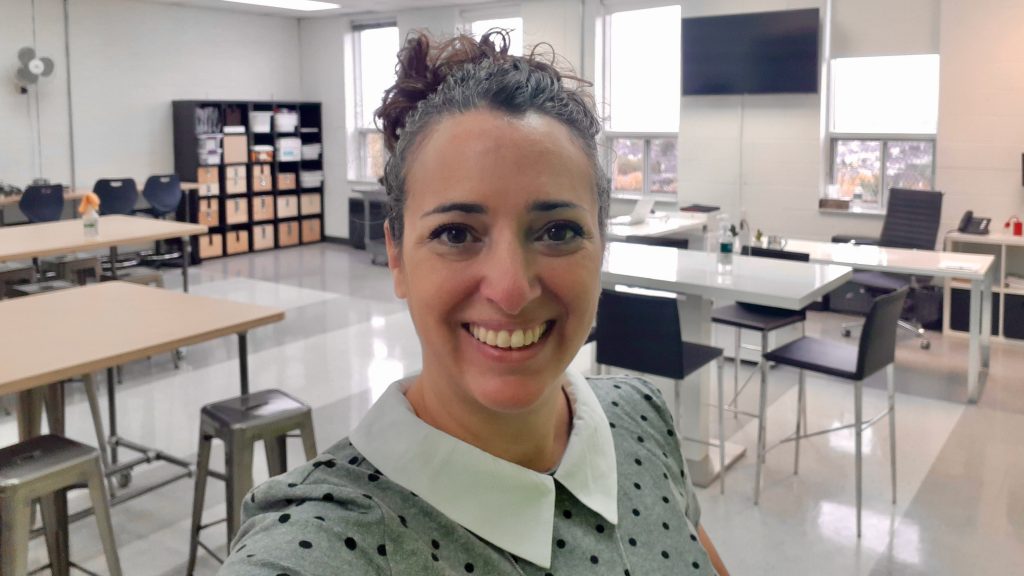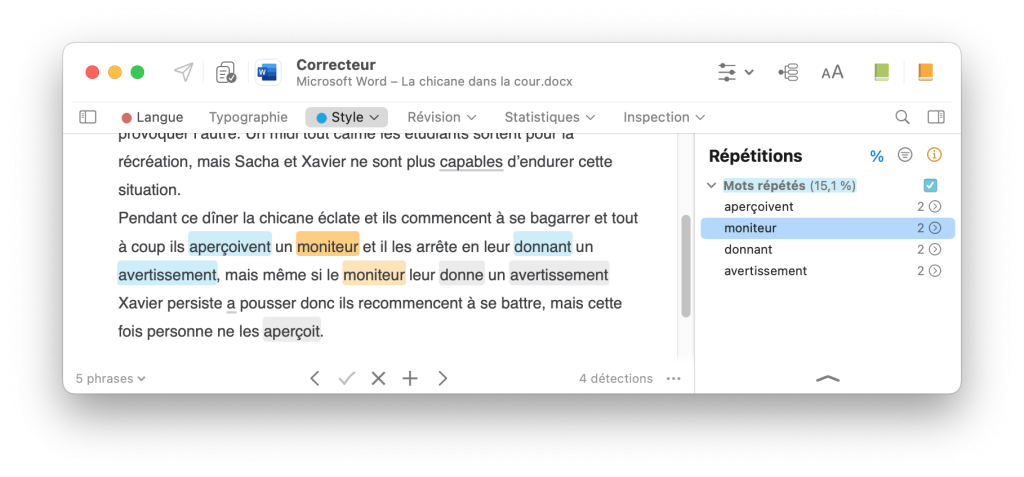Cette année, tous les élèves de la première secondaire du Collège Trinité utilisent Antidote, avec l’aide de la technopédagogue Pascale Campeau. Dans cet entretien, elle nous explique pourquoi son école a pris cette décision, partage ses conseils pour bien y arriver et témoigne de l’impact positif de cette démarche pour la réussite scolaire.

Pourquoi intégrer Antidote dans les cours de français?
Pascale Campeau : Nous croyons qu’Antidote est un outil pour la vie. Et comme notre mission consiste à préparer les élèves pour l’avenir, nous considérons que ce logiciel de rédaction leur servira tant pour leurs études supérieures que sur le marché du travail.
En plus, du point de vue pédagogique, Antidote peut changer la façon d’apprendre à écrire, avec une approche plus dynamique et formatrice, à condition de bien accompagner les élèves.
Comment commencer à utiliser Antidote en classe?
P.C. : Il faut y aller à petits pas, parce qu’Antidote est un logiciel très puissant, et on veut éviter la surcharge cognitive. Je recommande de faire des exercices courts et fréquents, concentrés sur une seule notion à la fois. Par exemple, on peut commencer les cours par un « 10 minutes cooccurrences ». Dans ce petit exercice de composition, les élèves doivent écrire un texte comportant 5 mots imposés, en utilisant ce qu’ils trouvent dans le dictionnaire de cooccurrences. Les entrées sont une source d’inspiration pour les élèves, qui enrichissent automatiquement leur vocabulaire!
Quel impact ces exercices ont-ils sur les élèves?
P.C. : Ça transforme complètement la façon de rédiger. Au lieu de jeter sur papier un brouillon et de le retravailler par la suite, ce qui rebute la majorité des jeunes, les élèves développent le réflexe d’écrire avec les dictionnaires. Ajoutez des exercices sur les verbes ternes et les répétitions, et je vous assure que ce trio change la vie d’un prof de français!
Comment exploitez-vous Antidote pour motiver les élèves?
P.C. : Une chose formidable que le correcteur d’Antidote nous permet de faire, c’est d’identifier et de quantifier en direct les améliorations que l’on peut apporter à un texte. C’est beaucoup plus concret de voir les verbes ternes s’afficher, puis de tenter de les éradiquer! J’aime recourir aux filtres du correcteur avec le pourcentage, puis fixer un objectif chiffré aux élèves : maximum 8 % de répétitions, par exemple. J’ai constaté l’impact positif de ces objectifs dans des classes moins disposées à s’appliquer en français; j’y ai même souvent entendu des exclamations de fierté comme « Madame, mon texte n’a aucune répétition! ».

Pascale Campeau a enseigné le français en première secondaire pendant une quinzaine d’années, avant de devenir formatrice pour Antidote, puis technopédagogue au Collège Trinité à Saint-Bruno-de-Montarville.









